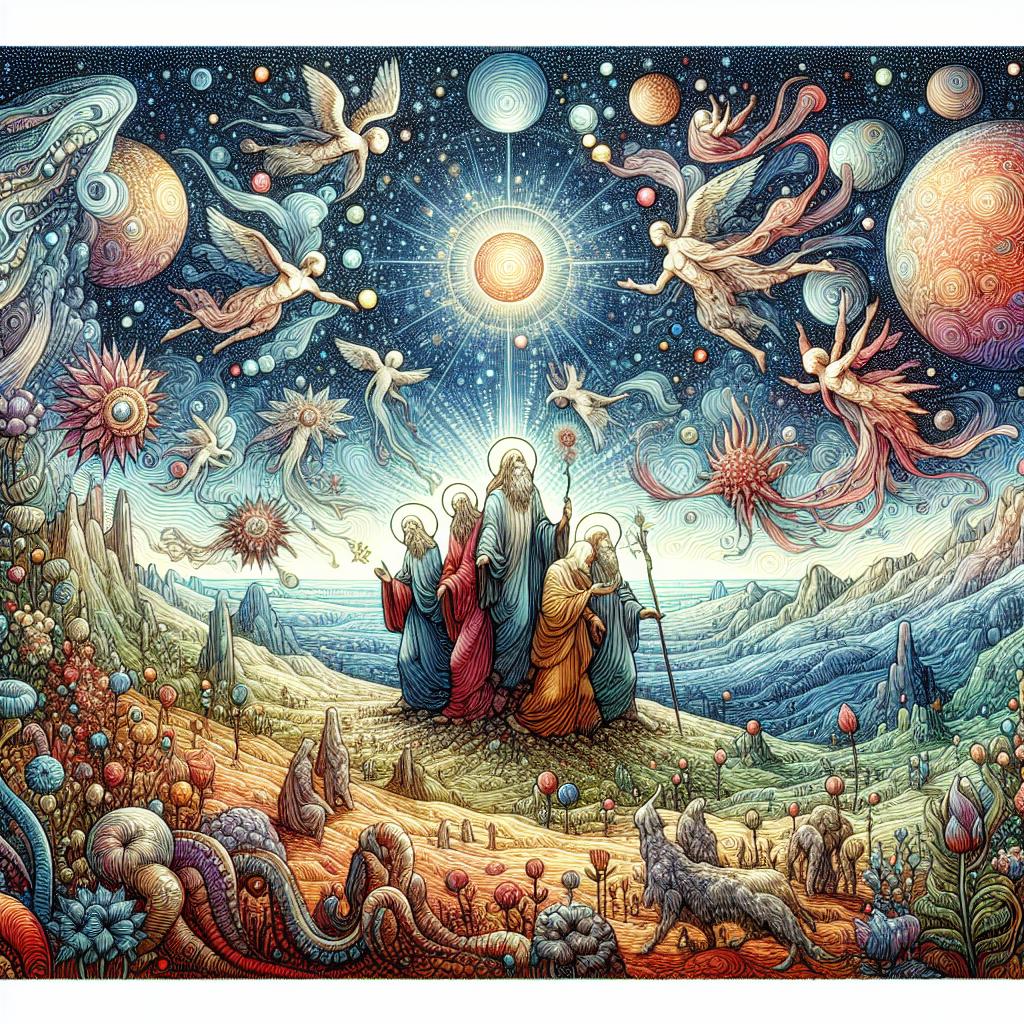
Divine Revelation: Did God Create Life on Other Planets?
Published: 10 June 2024
Did God Create Life on Other Planets?
Many people wonder if there is life on other planets, and this question has generated much debate among Christians and non-Christians alike. Some argue that with the vastness of the universe, it would be a waste of space if Earth were the only inhabited planet. However, it is important to base our thinking on what God has revealed in the Bible rather than our own assumptions.
The Vastness of the Universe
The size of the universe can be overwhelming to us as humans because our comprehension is limited to the time and space dimensions in which we exist. However, for God, who created the universe, its size is not a limitation. We cannot measure God's greatness using tools made from the very atoms He created. The Bible tells us that God is everlasting and does not grow weak or weary (Isaiah 40:28).
It is true that God created billions of galaxies with billions of stars in them, but size is not an issue for Him. Stars are relatively simple structures compared to the complexity found even in a dead fish. The creation of the universe and its vastness should inspire awe in us and remind us of the power and greatness of our Creator.
The Bible and Extraterrestrial Life
The Bible does not explicitly mention extraterrestrial life, and this has led some to speculate that God may have created life on other planets. However, it is important to consider the broader message of the Bible and how it would be affected by the existence of extraterrestrial beings.
The Bible teaches that all of creation was affected by sin and groans under its weight (Romans 8:18–22). The effects of Adam's fall were universal, which is why God will eventually destroy this creation and create a new heavens and Earth (2 Peter 3:13, Revelation 21:1). If there were extraterrestrial beings living elsewhere, they would have been unjustly affected by the consequences of Adam's sin, even though they would not have inherited his sin nature. Jesus came to Earth to redeem mankind and eventually the whole creation back to Himself (Romans 8:21, Colossians 1:20), but His sacrifice is only effective for physical descendants of Adam.
The Bible does not provide any provision for God to redeem other species or extraterrestrial beings. Christ's sacrifice on the cross was a one-time event that does not need to be repeated elsewhere (Hebrews 9:26). The redeemed church is described as the bride of Christ, and there is no provision for Christ to have multiple brides from other planets (Ephesians 5:22–33, Revelation 19:7–9).
Fitting ETs into the Bible
Some attempts have been made to fit extraterrestrial beings into the Bible based on certain passages. For example, Hebrews 11:3 mentions the "worlds" being framed by the word of God, and some argue that this refers to other inhabitable planets. However, the word used here can also be translated as "universe" and describes everything that exists in time and space, visible and invisible. Even if it were referring to other planets, it would be an unwarranted extrapolation to assume intelligent life on them.
Expressions like "the heavens and earth" in Genesis 1:1 are figures of speech known as merisms, where two opposites or extremes are combined to represent the whole. The Bible does not have a word for "universe" and instead uses merisms like "the heavens and the earth" to describe everything that God created when time began. New Testament passages such as Romans 8:18–22 and Hebrews 11:3 are referring back to the Genesis creation account.
A Novel Approach
Some have proposed the idea that extraterrestrial beings, not being descendants of Adam, would not have inherited his sin nature and therefore do not need salvation. However, this argument fails to account for the fact that God created man in His image and likeness (Genesis 1:26). If extraterrestrial beings were capable of visiting Earth, they would surpass mankind in intelligence and technology, potentially placing them higher in the created order. This would contradict God's ordained authority structure, where mankind was given dominion over the Earth (Genesis 1:28).
The Purpose of the Universe
The vastness of the universe serves to declare the glory of God and showcase His handiwork (Psalm 19:1). The more we discover about the universe, the more we should be in awe of the One who created it all. Instead of speculating about imaginary aliens, we should focus on considering the greatness of God.
Why This Matters
The question of extraterrestrial life is not just a matter of curiosity but has implications for our understanding of God's plan of redemption. By exploring this topic from a biblical perspective, we can gain a deeper appreciation for God's creation and His purpose for mankind.
Think About It
- How does the vastness of the universe inspire awe in you?
- Why is it important to base our thinking on what God has revealed in the Bible rather than our own assumptions?
- How does the existence of extraterrestrial life impact our understanding of God's plan of redemption?
- What is the significance of humans being made in God's image and likeness?
- How does the concept of the dominion mandate relate to the idea of extraterrestrial beings?
